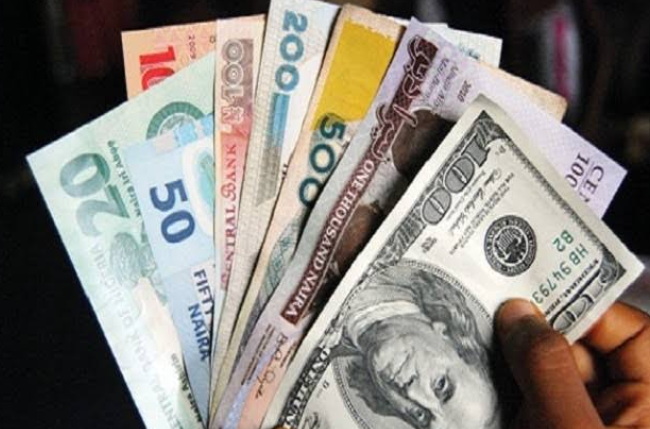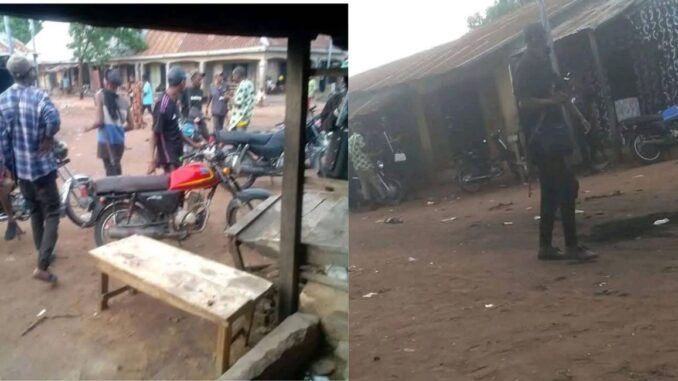News
SEE Dollar to Naira Today Black Market June 17, 2024: USD to NGN CBN Rate

By Kayode Sanni-Arewa
Navigating the Currency Exchange Landscape in Nigeria Navigating the currency exchange landscape in Nigeria requires up-to-date knowledge of the dollar to naira rates. As of June 17, 2024, this comprehensive guide provides the latest exchange rates from both the black market and official windows, including insights from platforms like Geegpay and Grey. Additionally, we’ll explore the factors influencing these rates and answer frequently asked questions.
Understanding the intricacies of the dollar to naira exchange rate is crucial for anyone involved in financial transactions in Nigeria. Whether you are a business owner, traveler, or investor, staying informed about the current rates can help you make better financial decisions. This guide aims to provide you with the latest information on the exchange rates, both in the black market and through official channels, and offer insights into the factors that influence these rates.
Dollar to Naira Black Market Exchange Rate The black market, also known as the parallel market, offers more attractive rates compared to official channels. However, these transactions come with inherent risks, such as the potential for fraud and legal complications. Currently, the black market rates for dollar to naira are as follows:
Buying Rate: ₦1,483
Selling Rate: ₦1,484 – ₦1,489
These rates fluctuate frequently, influenced by demand and supply dynamics, geopolitical factors, and economic conditions.
Geegpay and Grey Dollar to Naira Exchange Rates Geegpay provides competitive exchange rates for various currencies, facilitating digital transactions for ease and convenience. As of today:
EUR (€): Buying at ₦1,690.03,
Selling at ₦1,695.55
GBP (£): Buying at ₦1,950,
Selling at ₦1,965 USD ($):
Buying at ₦1,500,
Selling at ₦1,550
Both platforms have become popular for their ease of use, transparency, and competitive rates, making them viable alternatives to traditional exchange methods.
Latest Dollar to Naira CB
The Central Bank of Nigeria (CBN) sets the official exchange rates, which are typically lower than black market rates but come with the stability of regulation:
Buying Rate: ₦1,467
Selling Rate: ₦1,470
CBN rates reflect government policies aimed at stabilizing the naira and managing the country’s foreign exchange reserves.
Comparing Official and Black Market Rates
There is a significant disparity between official and black market rates. While the black market offers higher rates, the associated risks are substantial. The CBN advises using official channels to avoid fraud and legal issues. Official rates, regulated by the government, are more stable and reliable, providing a safer option for transactions.
Pounds and Euro to Naira Exchange Rates For those dealing in other currencies, here are the latest rates:
Pounds to Naira (CBN Rates)
Buying Rate: ₦1,890
Selling Rate: ₦1,905
Euro to Naira (Black Market Rates)
Buying Rate: ₦1,615
Selling Rate: ₦1,625
These rates are also subject to fluctuations based on market conditions and economic policies.
Understanding Exchange Rate Fluctuations
Exchange rates between the dollar and naira fluctuate due to several factors. Key influences include:
*Economic Policies:* Government decisions on interest rates, inflation control, and monetary policies play a significant role.
*Supply and Demand* : The availability of foreign currency versus local currency demand.
*Political Stability* : Geopolitical events can create uncertainty, affecting investor confidence.
*Global Economic
Conditions: Changes
in global markets, such as oil prices and economic growth rates, impact the naira.
How to Safely Navigate the Currency Exchange Market
Given the risks associated with the black market, it is advisable to use official channels or reputable online platforms like Geegpay and Grey for currency exchanges. These platforms offer transparency, security, and competitive rates, reducing the likelihood of fraud and legal issues.
Practical Tips for Currency Exchange
*Research Rates Regularly* : Stay updated on the latest rates to make informed decisions.
*Use Reliable Platforms* : Opt for trusted online services or official banking channels.
*Monitor Economic News* : Keep an eye on news that could affect currency values.
*Plan Ahead* : If possible, plan currency exchanges in advance to take advantage of favorable rates.
FAQs
What is the current dollar to naira exchange rate in the black market?
The current black market rate for the dollar to naira is around ₦1,485 for buying and between ₦1,485 and ₦1,487 for selling.
How does the CBN exchange rate compare to the black market rate?
The CBN exchange rate is slightly lower, with the buying rate at ₦1,467 and the selling rate at ₦1,470. The black market rates are typically higher due to demand and supply factors.
*Are online platforms like Geegpay and Grey reliable for currency exchange?*
Yes, platforms like Geegpay and Grey are reliable and offer competitive rates. They are convenient for individuals and businesses engaged in international transactions.
*Why does the dollar to naira exchange rate fluctuate?*
The exchange rate fluctuates due to various factors, including economic policies, inflation, global economic conditions, and market speculation.
*Is it safe to use the black market for currency exchange?*
While the black market may offer better rates, it carries risks such as fraud and legal issues. It’s advisable to use official channels for safer transactions.
*How can businesses manage exchange rate risks?*
Businesses can manage exchange rate risks through hedging strategies, diversifying income sources, and regularly monitoring market trends.
*Conclusion on Black Market Dollar to Naira Exchange Rate*
Staying informed about the dollar to naira exchange rate is essential for navigating Nigeria’s economic landscape. While the black market offers attractive rates, the risks involved often outweigh the benefits. Therefore, using official channels and reliable online platforms is recommended for safer and more transparent transactions.
News
Reps Tackle CBN, OAGF Over Missing Grants, Bailout Funds

According to him, such financial mishandling not only disrupts critical public services and projects but also results in major losses to the nation’s purse—resources that could have been channelled into crucial services and developmental efforts, as laid out in Section 14(2)(b) of the Constitution.
Speaker Abbas, thereafter setup a Special Committee to be chaired by Rep. Chinedu Martins to immediately launch a probe into the “Utilisation of take-off grants, bailout funds, and interventions allocated to MDAs, government institutions, and GOEs from 2015 to present.”
News
Abuja light rail project must be commissioned on May 29-Wike vows

The FCT Minister, Mr. Nyesom Wike, expressed satisfaction with the progress on the Abuja light rail project, reaffirming its May 29 delivery as sacrosanct.
He made these assurances after inspecting the ongoing construction of access roads to the train stations on Wednesday, from Metro Train Station in the Central Area to Nnamdi Azikiwe International Airport, Abuja.
Reassuring journalists accompanying him, the minister reiterated that President Bola Tinubu would commission the rail project on May 29 to mark his second year in office.
The visited stations were Wupa station near Idu and Bassanjiwa station near the airport.
“This is part of our routine inspection of ongoing projects to see the contractors’ progress,” Wike explained.
“We are working day and night to fulfill our promise to President Tinubu and FCT residents. By May, Mr. President will ride on the Metro line.”
News
Just in: Alleged Herdsmen Armed With AK-47 Rifles Take Over Communities In Benue State

Gunmen suspected to be Fulani herdsmen are currently invading some communities in the Ukum Local Government Area of Benue State.
According to sources, the herdsmen armed with AK-47 rifles stormed the community around 04:15pm on Thursday.
“Our lives are in danger this evening, armed Fulani herdsmen, about 600 in numbers have taken over our communities this evening,” a resident told SaharaReporters.
“They’re currently moving around towns in Ukum Local Government Area of Benue state. No security personnel at all, Governor Alia didn’t send security, they said operation will start soon once they (herders) have observed the place.”
The insecurity situation in Benue has been alarming in recent weeks with attacks from gunmen suspected to be herdsmen.
The media had reported that suspected herdsmen again unleashed terror in Benue State, attacking three communities in Otukpo Local Government Area (LGA) on Wednesday, just a day after 11 people were killed in a deadly raid on Otobi community.
The latest victims of the escalating violence were Emichi, Odudaje, and Okpamaju, communities that had previously suffered an attack in February, which left five people dead.
However, the renewed attack has created fear and mass displacement among residents, with women and children fleeing to safety.
Local sources say the death toll from the fresh attack remains unclear, but several casualties are feared.
-

 News13 hours ago
News13 hours agoBREAKING: Unknown gunmen reportedly storm Senator Natasha’s family residence
-

 News16 hours ago
News16 hours agoSnub story on removal of Rivers Sole Administrator, it’s FAKE-Chief Registrar
-

 News22 hours ago
News22 hours ago“How my father escaped assassination” – Bishop Oyedepo’s daughter
-

 News22 hours ago
News22 hours agoFG expresses sympathy for CBEX victims, urges a united effort to combat Ponzi schemes
-

 News15 hours ago
News15 hours agoSAD! Again, Alleged Herdsmen Attack Three Benue Communities
-

 News7 hours ago
News7 hours agoAbuja light rail project must be commissioned on May 29-Wike vows
-

 Politics15 hours ago
Politics15 hours agoPDP govs are jokers, can’t stop coalition train, Atiku boasts
-

 News13 hours ago
News13 hours agoLawmaker Slams NBA Over Rivers Crisis, Demands Return of N300m





